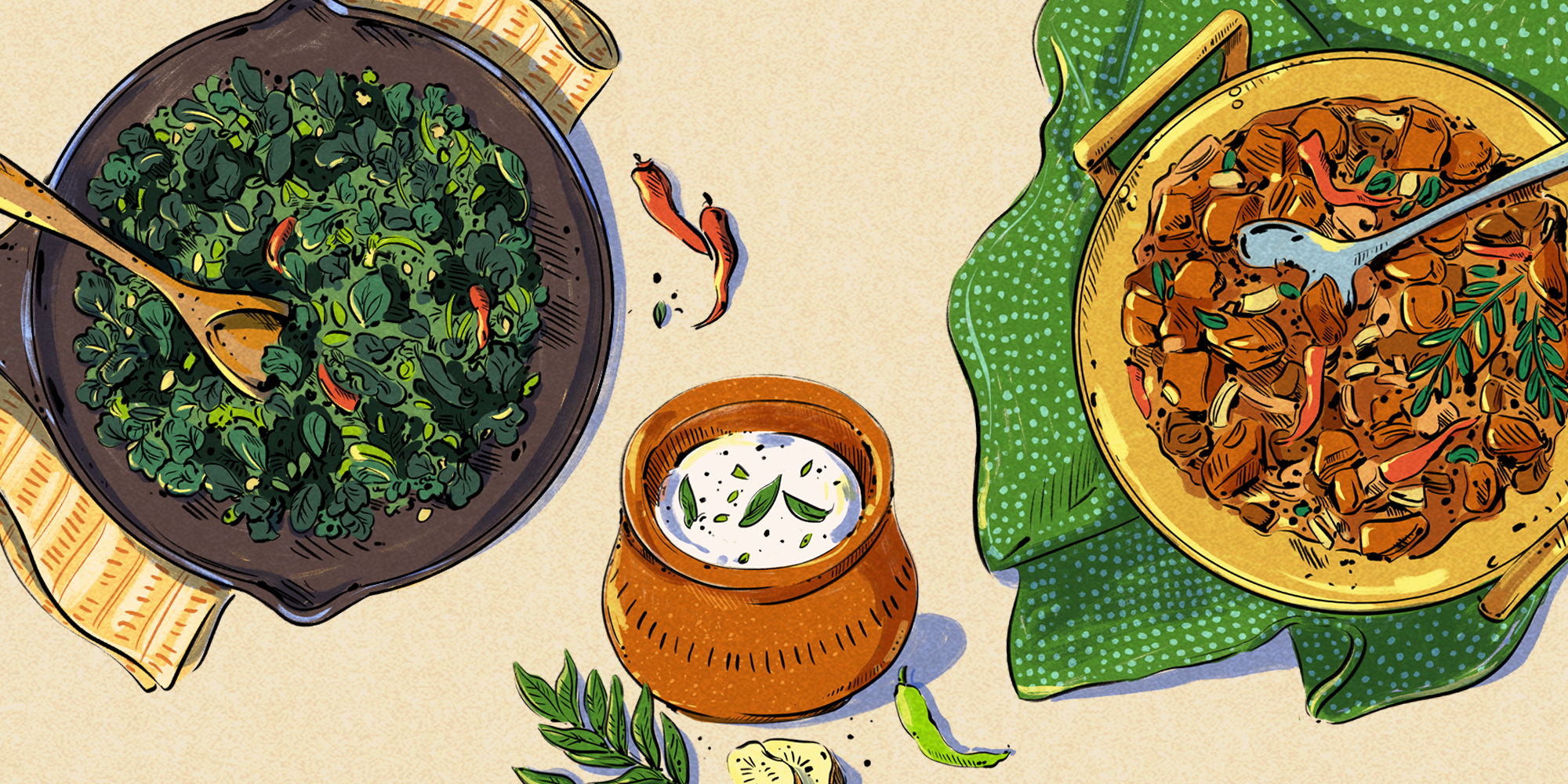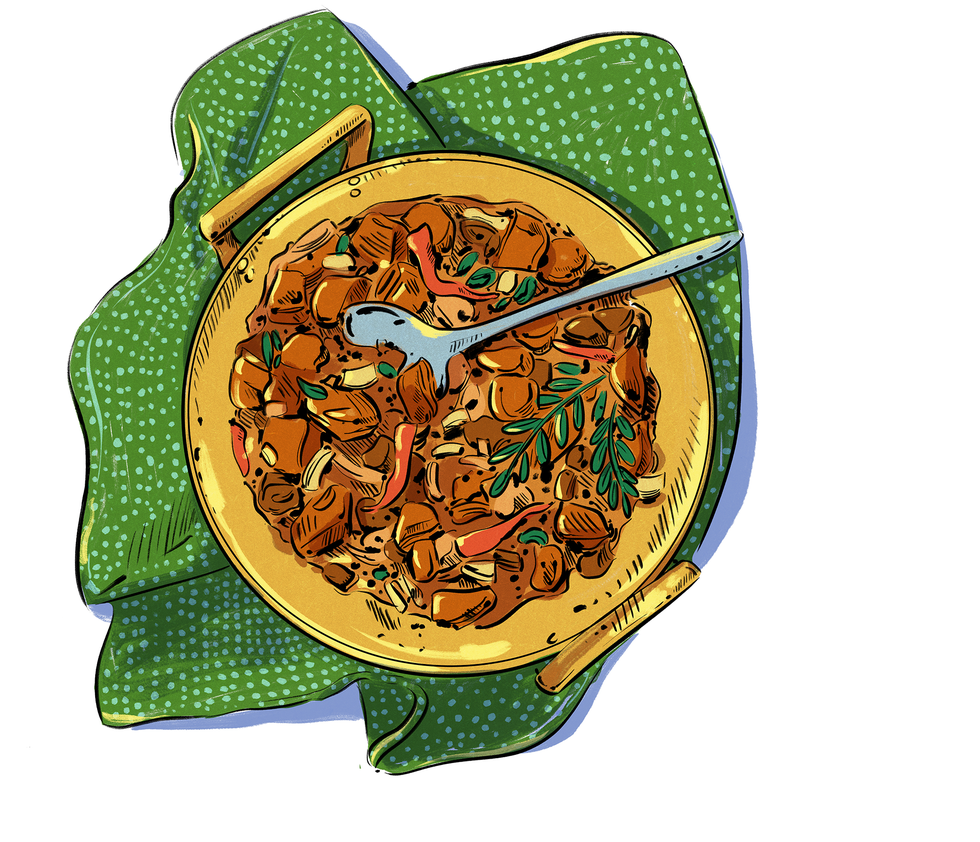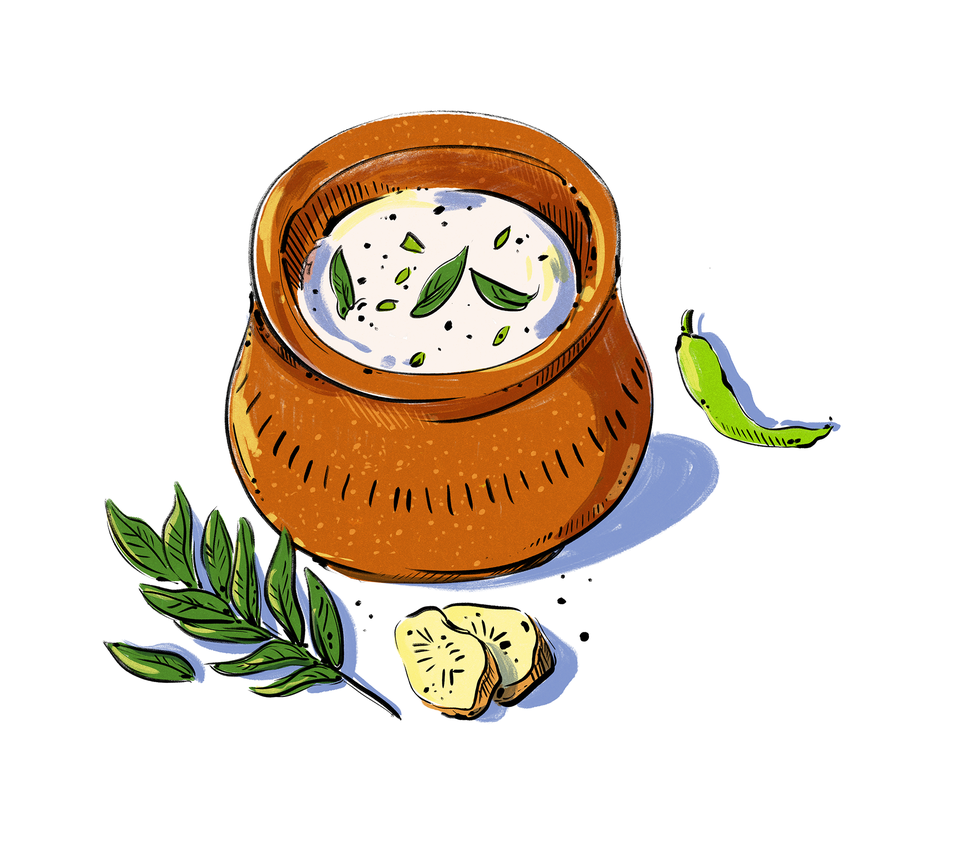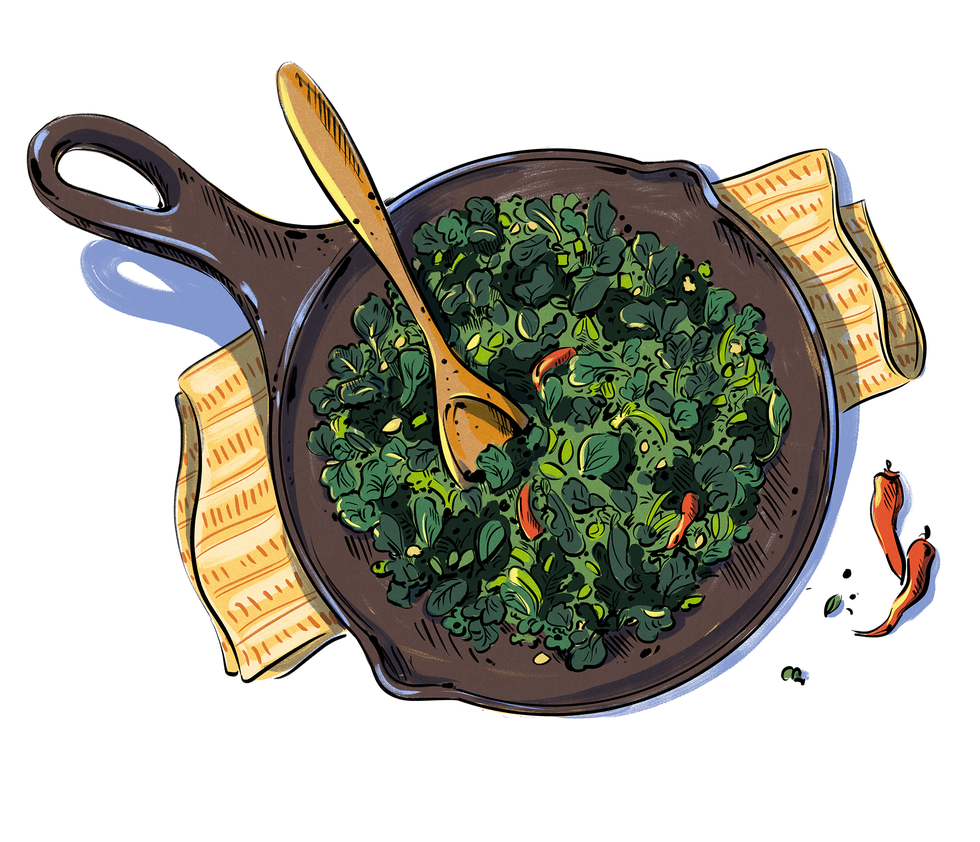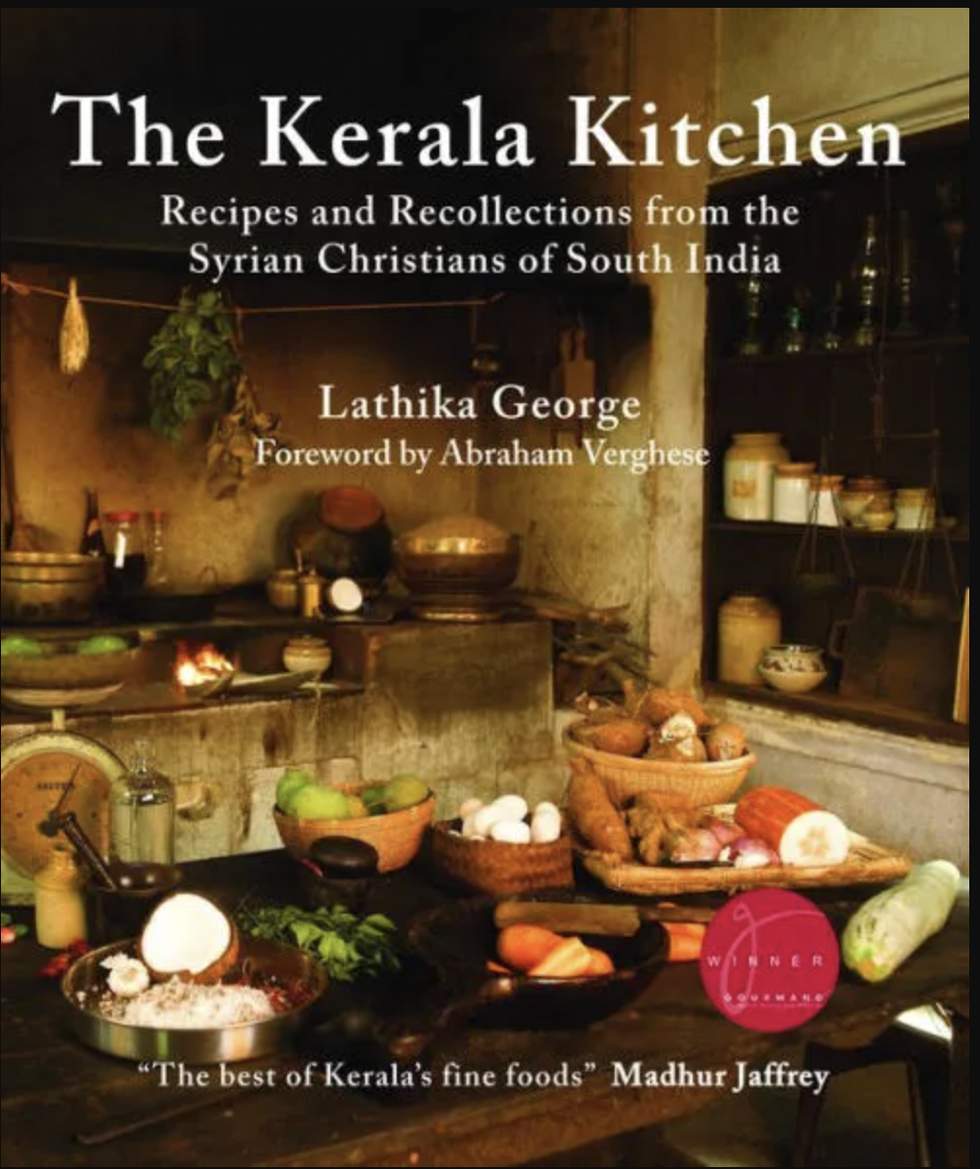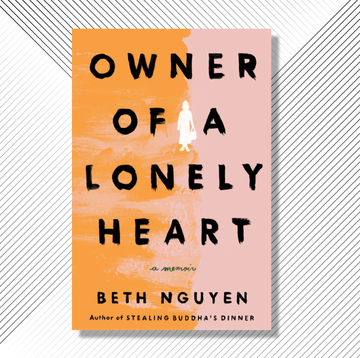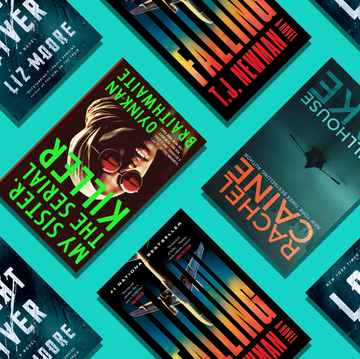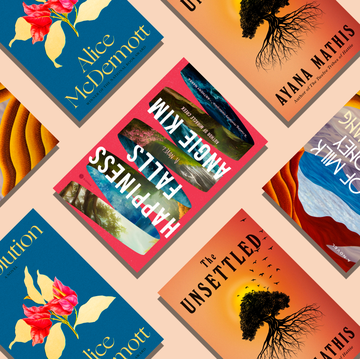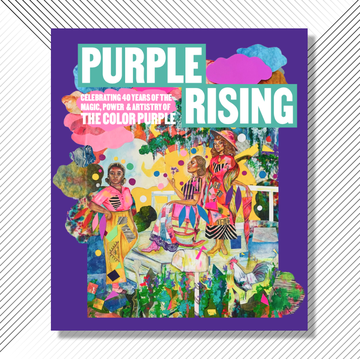The Covenant of Water has something for everyone: romance, history, politics, medicine… and a whole lot of tantalizing food. Author Abraham Verghese sets the novel Kerala, an Indian state on the Malabar Coast where spices grow in unmatched abundance. Perhaps more than anywhere else on earth, Kerala is shaped by flavor, with European explorers and Arab traders flocking to the “spice coast” for a taste of its legendary cinnamon, cardamom, cloves, and fennel seeds—and bringing with them new religions, cultures, and political orders. Verghese honors the world-bending power of Kerala’s flavors on nearly every page, with dizzyingly rich descriptions of sizzling meats, fresh coconuts, rich curries, and bright mountains of spice.
While writing the novel, Verghese relied on Lathika George, the author of The Kerala Kitchen, as “a resource for anything related to food.” Like many of the novel’s main characters, George is an Indian-born Syrian Christian—with some serious culinary chops. Her writing, which delectably blends memoir, recipes, and travelogue, brings the flavors and history of Kerala to your dinner table. As Verghese, who wrote the foreword for the book’s forthcoming expanded edition, put it, “What better way to understand the community of Syrian Christians of Kerala—my community—than through our appetites.”
Short of hopping on a plane, these three recipes, selected and adapted by Verghese himself, are the most authentic way to satisfy your post-Covenant cravings. So stock up on some frozen coconut, and let’s get cooking!
More From Oprah Daily

Keralan Coconut Fried Beef (Erachi Olathiathu)
This is one of Abraham Vergese’s favorite family recipes and one that makes several mouthwatering appearances in the novel (although under its alternate spelling of olarthiyathu). Big Ammachi discovers that the dish, which translates to “fried meat,” is the “secret to getting what you wanted from your husband”; in preparation for asking her new groom to attend church with her, she “brings it out sizzling, the oil still spitting on the blackened meat’s surface… Before she’s done ladling it on his banana leaf, he’s popped a piece in his mouth. He can’t resist.”
Verghese has some tips to make your own erachi olathiathu just as irresistible as Big Ammachi’s—and a bit simpler.
“As a shortcut, I use ginger and garlic paste,” Verghese explains. He also recommends opting for precut coconut pieces, which you can find in the freezer section of any Indian store. “Nothing like fresh ingredients, but sometimes you don’t have the time and energy,” he says. Just like Big Ammachi, you can do most of the prep work well ahead of time and simply refry the meat immediately before serving.
“There are as many variations of this dish as there are households,” Verghese writes. In his own household, he likes to use onions in place of shallots and to serve the sizzling meat with rice, garnished with fresh curry leaves for a burst of bright flavor: “Like cilantro with a kick.”
This dish can be made with either beef or pork; while coconut oil is traditional, it can be substituted with any other cooking oil you have on hand.
Spiced Buttermilk
Keralans know a thing or two about staying cool; temperatures in the region can reach up to 104° Fahrenheit, and the cuisine packs a punch! But luckily, the culinary masterminds of the Malabar Coast have the perfect antidote to a hot summer afternoon and the perfect accompaniment to a spicy Indian meal.
In The Covenant of Water, Verghese describes this traditional spiced buttermilk as a “better invention than penicillin”—strong words coming from an infectious diseases doctor! The miraculously refreshing beverage makes an appearance toward the end of the novel when Mariamma returns home after a hot and harrowing day; “Anna Chedethi takes one look at her face” and knows what to do: “She whips chilled yogurt and water in a small bowl, adds a slice of green chili, chopped ginger, curry leaves, and salt, and serves it to her in a tall glass.” Mariamma drains the glass and is instantly revived.
Verghese remembers his mother and grandmother making it for him when he was a little boy; he recommends swapping out yogurt for kefir for an extra boost of probiotics and adding mint to take this drink’s cooling powers to the next level.
Spinach with Crushed Coconut (Cheera Thoran)
Kerala is often referred to as “the land of coconuts trees”—and for good reason.
As Verghese writes toward the beginning of The Covenant of Water, the palms grow so abundantly in the region that their “frilled silhouettes still sway and shimmer on the interiors of closed eyelids.” Coconut is a key ingredient in many classic Keralan dishes, especially in the sautéed vegetable thorans that are traditionally served alongside any meal. “Every Kerala dish has to have a vegetable accompaniment, otherwise it feels incomplete,” Verghese insists. This thoran recipe calls for spinach (cheera in Malayalam), but you can use any vegetable you have on hand; Verghese likes to use chopped and frozen green beans. “The speed with which my grandmother or mother could throw a thoran together would always amaze me,” the author recalls. Seemingly in one fluid motion, the women would heat up the oil, chop the onions, grind the coconut, and sizzle the spices, and “in a few minutes, it was done.”
Recipes adapted from The Kerala Kitchen, by Lathika George, published by Hippocrene Books, Inc.

Charley is a Books Editor at Oprah Daily where she writes about authors, writing, and reading. She is also a freelance writer and audio journalist whose work has been featured in the Atlantic, the Los Angeles Review, Agni, and on the Apple News Today podcast. She is currently completing an MFA in creative nonfiction at NYU and working on an essay collection about the intersection of grief, landscape, and urban design.
